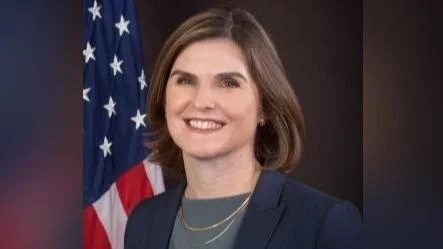Police and paramilitaries were noticeably present around the Managua cathedral in Nicaragua on Palm Sunday, ensuring religious celebrations remained confined to church premises. Inside, Cardinal Leopoldo Brenes focused his homily on themes of forgiveness, speaking about love and suffering.
“Forgiveness is part of the Lord’s passion, it is part of the fruit of an experience of suffering, of pain, but one that has been done with love, and Christ Jesus has done it because it has been the mission entrusted to him,” stated Cardinal Brenes. He reminded the congregation of God's intense love and forgiveness, referencing Pope Francis.
Across Nicaragua, Catholics celebrated Holy Week under the scrutiny of the Sandinista regime, which has prohibited public processions for three consecutive years. The constraints appear to be part of increasing repression by co-presidents Daniel Ortega and Rosario Murillo's administration, which has labeled Catholic leaders as “terrorists” and exerted control over church activities.
Auxiliary Bishop Silvio José Báez noted on social media, “The Nicaraguan dictatorship has banned street processions. What they will not be able to prevent is the crucified one from revealing his victory in every struggle for truth and justice, in every effort to defend human dignity, and in every act of solidarity for the victims.” Bishop Báez left Nicaragua for safety reasons in 2019 but continues to engage with the Miami-based exiled Nicaraguan community.
There is ongoing intimidation against priests, who are monitored by both authorities and some parishioners. According to a Church Solidarity Worldwide report, clergy have to regularly inform police of their activities and cannot leave municipalities without permission, complicating religious duties.
The report mentions, “Religious leaders of all types reported regularly receiving verbal orders from security officers not to mention specific subjects including political prisoners, Israel, and the general situation in Nicaragua in any of their public discourse and not to use the combination of the colors blue and white (the colors of the Nicaraguan flag) in any decorations or other materials.”
Spies frequent Masses, police visitations are routine, and espionage networks infiltrate parishes, as described by Denis Alaniz from Panorama Católica. Alaniz recounted that some priests in the Diocese of Matagalpa, where Bishop Rolando Álvarez and others were exiled, abstain from preaching to avoid detainment.
The Catholic Church remains a voice of dissent in Nicaragua as the regime restricts independent media, non-governmental organizations, and religious associations, relegating opposition. Since protests began in 2018, the regime has viewed the Church as adversarial, particularly after the Church aided protesting groups.
Caroline Cowen, an international affairs consultant, highlighted the increase in repression during significant dates or gatherings, noting the timing of Good Friday in 2025 coinciding with a protest anniversary.
In recent years, many church leaders and organizations have faced exile or closure. Ex-diplomat Arturo McFields commented, “It’s a sign of fear of the church’s spiritual power.” Despite various constraints, McFields emphasized the unwavering faith of the people.
David Agren reports for OSV News from Calgary, Canada.
 Alerts Sign-up
Alerts Sign-up





